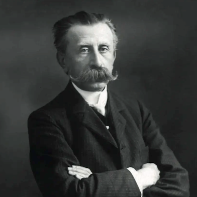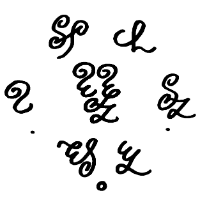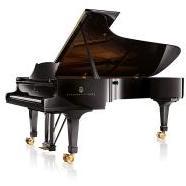Leaderboard
Popular Content
Showing content with the highest reputation on 05/21/2023 in all areas
-
Hi everyone! I am presenting the fourth movement of my Piano Sonata no.2 in A-flat major. The previous 3 movements are now all sorted in the post of the 1st movement one so if you are interested, go and check them out! This is my favourite movement of the entire sonata. First it's in C sharp minor, my favourite key. Second it really has something personal in it. The structure of it is very simple: 00:03 First Part, melody in right hand and octave accompaniment in LH 04:13 Second Part. original melody to the right with added Lamentoso in RH 07:34 Coda. Is that a dark reply to the first movement? The movement is named a "Lyrics" for me. Chinese poems are known to be lyrics, rather than long epics like those of Homer or Milton or Goethe. I'm trying to adapt the rhythm of Tang Poem, Lüshi here which contains five or seven words in each sentence with standard rhythm to recite it. It also contains many couplets. With reference to it I have a standard rhythm maintaining all over the movement and is having many couplets musically. In the first part the LH keeps having the octave accompaniment which can be boring but for me it helps create an unsettling feeling. In the second part, the original melody in the RH of the first part is transferred to the LH, while a lamentoso is added in the right hand. The coda returns to the first part version of the meldoy, but look at the ending. Is that a dark deeply or quotation to the con delore section of the first movement, b.82-98? The tragedy uncertain there is confirmed here. I myself feel like this movement is quite unrelated thematically to the rest of the sonata. But it's related in a different way. It represents the real hurdle in the subconscious finally emerges in front of you. The unsettling C# minor (Db minor) is hinted all over the first three movements: The con delore section (b.82-98) in first movement, that surprising Db minor cadence near the end of the second movement (which by the way is the answer of why there's agitation there), and the coda of the third movement tainted by Db minor. All prepares for this movement. I find this piece somewhat similar to the second movement of Schubert's D960, which is also in C sharp minor, but only after finishing this sonata. The movement for me is very dark hence very personal. I'm sure I have something dark personally and here it's expressed authentically. I literally get depressed every time after listening to this movement. How do you feel? Do you feel this movement boring or so with so slow a tempo and unchanging things? Let me know! As usual I'm going to attach the PDF and mp3 of the movement: Piano Sonata no.2 4th mov 26-04-2023.pdf Piano Sonata no.2 4th mov.mp3 (Please ignore the first three lines of p.1 as it's from 3rd movement!) And as usual I will attach the youtube video here of the scored version of the movement. There's some delay of the visual here though LoL... Please subscribe my channel! (Self advertising LoL!!!!!!!!!) Hope you all "enjoy" the movement! The fifth movement and the finale of the sonata will be a long way to go, as I don't start practicing it due to busy schedule and other accompanying stuff to do. See you soon! Henry1 point
-
G'day everyone! Hope you are having an amazing day! Thanks for all the feedback you've given on my first draft of my Étude in G minor; I went ahead and made a couple of revisions accordingly. I hope you enjoy! Quinn St. Mark1 point
-
G'day @Henry Ng Tsz Kiu, Hope you're well. Yeah, sorry. I'll remember that for next time. I promise I'm not trying to spam the system! Thanks, I will! Noted. As requested, I have attached here the PDF file of the newer version: All the best! Quinn St. Mark1 point
-
In occasion of my cousin Álvaro's 39th birthday, I have finally finished this fugue, which for the longest time has given me headache after headache in my insecurities regarding how to approach its desired stylistic outcome. In the end, I have opted for yet another instance of fugal eclecticism, as can clearly be noticed in the combination of baroque-style counterpoint with a wide range of dynamic markings evenly spread throughout the entire piece. Even though it may seem somewhat lacking in orthodoxy to some, I should probably point out that certain puristic expectations concerning my work (which has textually been called a "collection of poorly recreative pastiches" a couple months prior) ought to be ditched out in favor of a more realistic approach that doesn't outright deny the originality of my music. We no longer live in the 18th century, after all: none of my compositions are meant to be seen as mere Baroque-style execrises, even if the majoritary stylistic resemblances may hint in that direction at first. Enjoy! Youtube video link:1 point
-
Hi Pabio, I definitely like all those details of dynamics! It makes me more fitting to a piano, apart from the hand problem. I will say this is my favourite of your three posts here, prob. since it's in minor key and I'm having a minor mood right now? Thanks for sharing! Henry1 point
-
Hi Pabio, I absoultely love the turn to C minor in b.43! The flat minor keys really providr a great cintrats to the otherwise sunny fugue for me! Will it be late to introduce a new subject in b.91? I think it's not developed enough and the original subject is abandoned for the most important moment of the piece, that is the end of a fugue! Nonetheless, thanks for your sharing! I always enjoy your stuff! Henry1 point
-
Hey Pabio, Again this is enjoyable stuff. @PCC is right to say some of the range is too big for keyboard players but as this is your old work I think you have already dealt with this issue in your recent works! Thanks for sharing! Henry1 point
-
This has really good potential. I think the lack of pauses or rests in the right hand though can lead to desensitization. I am actually guilty of this myself when I listen to my older works. You want to introduce some pauses and duration changes from time to time to help the listener absorb what they are listening to. I know that something like Chopin's prelude 16 basically has no pauses either, but hear me out on this one: Pianists rip through that piece in a minute or so, and Chopin's note placements going at those insane speeds make for some interesting melodies that you can only hear, in fact, at those speeds! Go figure! Your piece is much slower, so you have to rely more on pauses and/or dynamic changes. With that said, I notice you opted this piece in to be presented in one of my videos. My next video is going to talk about realistic playback, and the insanely difficult process in getting realistic playback to be effective with a notation software. So I was wondering a few things: Would you mind if I use your piece to demonstrate how it sounds "pre nuanced?" If you don't mind, could you send me the midi of this piece? Then I will nuance and record parts of your piece, to show my audience the before and after. This would greatly help me with my demonstration. If you are ok with that, I need your midi file. You can PM it to me here.Thank you for posting.1 point
-
Hi Henry This is my favorite movement so far in the sonata as well. Every time you post a new movement, I listen in order from movement 1. I just always want to view the work as a whole rather than hear and comment on this in isolation. First of all, all the movements fit together really nicely. I think you were very aware and conscious of what each movement needed, and I love the funeral march quality this one has. The section starting at b.45 is my favorite part of your entire sonata (so far!). It reminds me of Mozart's music; not in it's content or style, but I love how every note played in the RH feels like it was perfectly placed, and if you removed or changed any one of them the piece wouldn't have the same lovely quality. The melody is gorgeous and emotional. It feels like you had a lot of things to say in this section in particular. It's drenched with passion and the lamentation is overflowing. I never felt like the drone notes were boring. On the contrary, the preceding two movements had loads of movement. They were a roller coaster of ups and downs, and the pedal notes in this movement helped with the somber trance you put us in for a contrast. The first and fourth movements shared that same choral four part harmony type of texture, which imo brought a nice cohesiveness to the work. This movement indeed sounds highly personal. My favorite part of instrumental music is that we get to mask the words we're dying to say and share with others. We get to hide the actual content of our personal feelings, and instead display the raw and emotional outcome of what the content really is. Even if I don't know what it is exactly you're trying say, I get to feel the plethora of emotions you've so beautifully crafted. I really like this, and it's something that makes your music unique to you. I think this is what we should all strive for as composers. Combining our knowledge of music, the desires of our heart and soul, and the cultural implications we wish to share, creating a delectable harmony that only you could craft. I wouldn't have ever thought of using this form from Chinese poems, because I'm not Chinese, and I have other things to share. But that's what makes the world go 'round. I've listened to this sonata a lot now, and I really hope you share the 5th movement soon, even if you can't have it recorded with another wonderful performance. A computer rendition would be just fine, just to give any of us following along with your progress some closure to the completeness of your work. You could always update the post later with one of those infamous Henry recordings (and give an excuse to bump your music up to the top of the forum lol). I'm kind of sad that more people haven't commented on this so far. Yeah, it's only been a few days, but each member here knows you fairly well compared to the rest of us with the outrageously generous commenting you give to nearly everyone's music. You're a fantastic composer and player, Henry. Thanks for sharing this piece, as it's one of my favorites by you. Can't wait to hear the final movement!1 point
-
Wow, awesome comments so far! It's really interesting to hear everyone's take on this art we all love, and it's really cool to learn more about everyone's motives and reasons for writing. I think the most relevant thing when writing is what makes your music relevant to you as the composer. We all have reasons for placing the notes on a particular line or space within the staff, and finding out what those reasons are is one of the most fun parts of being a composer. Every one of us has a place in this world, and if we all occupied the same place, how boring would that be? I'll add more to this thread, but for now I'm happy it has given life to well thought out comments from various points of view.1 point
-
For me it is simple. I'm a student of music composition, and everything I do is with that understanding. I'm learning. Sometimes its good. Sometimes not. Were I ever to get to a public performance level, I would hope my approach has an audience, but I simply can't pander or be someone I'm not. For me, much of music stops around, say, 1945. I occassionally come across a modern/post modernist piece that appeals to me, don't get me wrong, but most of it I find derivitive, vapid, and, worst of all, UGLY. Life is too short to spend time on that, and we can get ugly anywhere in this world. I don't at all get the idea that we've somehow exhausted music in the common practice period/romantic style, and that we must move on. It seems patently false. My appreciation of the 1st generation Hollywoood film composers and John Willliams is founded on this continung to explore the ENDLESS possibilites. As others have spoken about here, if the music rings emotionaly true and effective, what can be more relevant? Maybe it's best to keep the nose to the grind stone, follow our inclinations while stiving to be better, and maybe the world will get our drift some time or another. Or not. I think most here are like me. We compose/create because we must. Its what we are. And there is/should be great satisfaction in being true to our nature.1 point
-
Hello Jörfi, Sorry for the delay of my response. The last month was a complicated time for me. I am really glad that you liked the piece. Thanks for your kind answer. Thank you Peter for your review, and also, I apologize for my late reply. The harmonics are maybe somewhat exaggerated, but that was just me, being a bit in an excited mood. Of course, the ending could have been written in many different ways, but I did not want to make an extension with new themes. I rather wanted to keep it short (perhaps the piece is useful as an “encore”) Thank you for your comments, Quinn Hello PCC, I agree with you about bar 39. It looks like an error which I overlooked. The top notes of the first and second dotted quarter chords should be quavers as well. I will change it. The piece should be played very fast (like most tarantella´s.) I indicated “prestissimo” at the beginning The sound file was set at a b.p.m. of 147 for a dotted quarter note. Thanks a lot for your comments!1 point
-
I can see this from both sides - principally because I used to be entirely and firmly rooted in @J. Lee Graham's camp (you might remember reviewing some of my Classical and Romantic period type pieces - Symphony in E-flat minor etc?). Now though, I write mainly contemporary music which the academics would call more 'relevant'. I've been thinking quite heavily over the past few months about what music means in the modern day, as I prepare to go to uni to study music. I've sort of come up with a sort of personal philosophy - namely that the way classical music is presented is too stuffy etc etc. But to try to stick to the question at hand, I really don't think I have much more to say than music is relevant if it serves a purpose. You, the composer, decide that purpose. It could be just for your own sake - @Henry Ng Tsz Kiu's "obligation to write". It could be that you're composing for people to play and to take enjoyment from playing - what @J. Lee Graham has said just above me. Or it could be a political/social/whatever commentary, as is the state of much academic "new" music composed today. I personally believe that the only real purpose of music is to inspire emotion, to provide an outlet for emotion, to invoke emotions in your audience. And is that not as relevant today as 400 years ago, albeit with a wildly different sound palette?1 point
-
Ah, relevance. Here's a question for you: why is it even important to be "relevant" as a composer? I've never understood this. It certainly doesn't matter to me, though it does to a great many others who worry about it unduly. I for one want nothing about this crazy modern world to have even the slightest influence on my art. I'm very happy indeed being relevant to an earlier time and place, namely 18th Century Europe. In the last few years, I have had a two motets, an anthem (admittedly in a more modern style), three chamber works, a Sinfonia Concertante, and a symphony of mine premiered by professional and competent amateur ensembles - the Sinfonia Concertante was even performed by an historically informed performance (HIP) ensemble on period instruments - and those are just the performances I know of (thank you IMSLP). The fact that my music isn't in the slightest "relevant" to our times doesn't seem to be hurting me any. Why should I worry about relevance? I'd rather beautify the world in my own way. I'm so fortunate that attitudes toward historicist composers are changing rapidly for the better. I fought long and hard to get where I am. It was as if I knew someday there would be a turnaround of values. If some of y'all want to spend your creative time beating the dead horse of "relevance," racking your brains trying to achieve that goal instead of just concentrating on making beautiful music, go ahead, I won't stop you. But I submit that your time and energy could be better spent just expressing yourself as best you can. Whatever you do, I wish you the best of luck.1 point
-
very philosophical, and more unfitting for me given the type of work I work, but anyway I could share some thoughts as well The bases of most music foundations are the human voice, even for instrumental music. Perhaps we can also extrapolate to the imitation of the worldly sounds as well. So how well had the different periods of music fare? That's not for me alone to decide, but I'd say the music throughout the ages had accomplished a lot. That is why I have a strong resistance to atonal music if it is written just for the sake of atonality. You don't just stick a banana on a wall and call it art. That being said, I think we can also look at other forms of art as reference. Not that I am well versed in any of those, but I suppose water colour, oil painting or manga styles all represent different techniques and cultures but can still be utilised today, and they were coming from different time points in the human history. So in general I don't think pieces wrote in supposedly older styles are any less relevant by virtue of their style alone. Not every new piece should sound like Berg or Schoenberg or something idk. (That being said I strongly think >90% of music composed this age should not use alberti bass -_-, that is the one thing I think everyone should actively avoid >_<) I think Henry's point that we are all human has a point. Originality is perhaps most important, but just how many composers can you possibly avoid sounding like? Past the first Viennese school you still have Clementi, Dussek, Hummel, Czerny, Field, past Elgar and Grieg you still have Popper and Britten, and then you have film music and game music composers who made a lot of great music as well, you cannot just sound like nobody else imo. EDIT: Music being composed should serve a purpose, like an occasion or a narrative. But I think even just to serve the composer's introspects alone is a well valid purpose. So for example, if you post your works here I assume you wouldn't try to make a living out of it? I guess the question becomes "Why do you post your own works?" I won't name any particular user, for I might be guilty of this too, but if you are just posting pieces back to back without actually performing them live or in recording, or interact with other users, then the next question we must ask is "Why bother?". Because frankly time is short.1 point
-
Hi Vince, These are indeed inspiring questions to inquire. I think for me there are must be mixed motives. I would honestly want promotion and compliments here, and also get feedback to be a better composer. Also by reviewing others you learn most. For me it's an obligation to write. If I don't write it down I will probably get depressed or repentant. There's something you must express and that's why I compose. I never compose for the sake of composing only and it never is a pastime for me. It's very challenging to write music for me and every time I have to grind it out and use 300% energy to write a passage. If I want a hobby I can just lie on my bed watching tiktoks. Composing is not enjoyable in itself but very rewarding once you finish a big task. And it's a must to write and no reason for that. To write good music you have to have good craftsmanship and thoughts. Imitating definitely helps polish your craftsmanship. You can stay this way too if you feel OK. But for someone who aims at something original, you have to have original thoughts too and have them realized in your music originally. Musical style for me is a product of thoughts, not the other way round. For me I don't think the music only holds relevance 200 years ago. Originality in music doesn't originate in music only but in different social, cultural, religious, philosophical context. Some of them remains new and true once created. That's what masterpiece means to be. Mozart's music is still beautiful today since he grasped some part of human soul and perfection and realises it in his music which will remain a part of human soul and culture. Other great composers do this too and have their own voices. To have originality in your music you will have to have real original things and feelings you want to express. Some succeeds, some fails. Striving for originality and uniqueness in your music is great. But is your originality and uniqueness really meaningful and valuable to the world and human culture overall? That's something I always thinking of. If the thoughts of me is not that original, how come my voice will be unique and beneficial to others? So I strive not only to immerse in music things but also on other subjects. Can Bach write those great Cantatas had he not immersed in the Lutheran Church culture? Beethoven is described as a savage, but he read Kant. Can he write the Ninth Symphony and the Ode to Joy had he not immersed in the Enlightenment thoughts? Haydn and Mozart joined Freemasons. Felix Mendelssohn is the grandson of great philosopher Moses Mendelssohn. Mahler thought all those big questions like death and meaning and resurrection. Many of the great composers have deep thoughts in other aspects of human culture and the thoughts are expressed through their music with unique style. To answer the relevancy question, it is to find both the universality and particularity of being in the world of 2023. We are here in the age of internet and AI, and there are numerous great composers who are out of the Austro-German tradition. The musical voice is changing drastically with much more emphasis on rhythm, tone colour, extended techniques, new sounds etc. The challenges to this particular ages we are facing are very different from what Bach and Beethoven are facing. The answer, expressed as music by composers, hence should be different. The form of expressing the different contents however, depends. This link to the universality of being in the world of 2023. Yes the society is all different. But we are also human beings like Bach did. There is some universality as a human being even though the society is changing. Master's music are great since they successfully capture these things and have them express in music, and are echoed by us. For some, this call of originality may not be bigger than this echo from soul. Hence the music they write can just echo what they feel as right and akin to older style music. Or in a lower level it can be a habit as well, psychologically speaking. One who strives for originality and fails can be the result of his music not echoing with the thoughts of others. Or it can just be chance. Handel and Bach's music were unbeknownst in their native country at their time; Handel got his fame in England while Bach almost none for his composition. But if your music is great enough I'm sure it finally be recognized. On the other hand, the uniqueness of some achieved is negligible since they do not answer to what we in 2023 need. I'm sure Tiktok videos are relevant to our world here, but they are meaningless and addictive. When the society changes, new expression is needed. But what expressions are needed? That remains the wisdom of composers and artists to think of. What is your towards the world now? What is your dream and ideal world? How will you express them through your music? These are questions we need to think of. Henry1 point
-
Hey my buddy, The structure is interesting here. It's great to have the introvert and extrovert of this farewell prelude. It really reflects both sides of you, Vince Meyer the person, like the Schumannian Davidsbündler, and also musically as the first half of the set more introvert and the next 5 more extrovert. This really is a great summation of the whole set to reflect the varied styles and moods of the set! I'm thinking of adding the Lebewohl motive at the end haha! But it's great you end in A major. I remember in your first one is a tragic song in A minor and this makes a cycle for the whole set of prelude! The opening certainly reminds me the opening of the famous Dvorak World Symphony theme. I freakingly love this part. Where can you find a more introvert and transcendental key than G-flat major??!! (Yes I'm advertising my Sextet movement in G-flat major right now LoL!!) Your quartal harmony here does create the lebewohl feeling for me. The A major modulation is utterly beautiful and those shiny notes in the high register! That's a good foreshadow of the end too! For this part this is the personal Vince that's telling straight to our heart his story. In the latter half you go for a "blue" version of the opening section. This is the chill Vince who appears playful in his appearance. Many decorations, much more movement in the right hand, funnier harmonies, yet the theme comes from the beginning and this is a great variation of it. In the coda you just go back to your personal mode. Simple but very fulfilling ending! It's like cancelling all those appearance and honestly get back to yourself again. It should be "amoroso" for the expression in the beginning. Really I'm happy and proud to follow your progress and review all of them. I'm real sad I'm still stuck in the 4th prelude! But this set is amazing and I love them so much. My fav will be no.12, 3, 6, 2, 11. They are all slow and quiet ones isn't it?! Thanks so much for sharing Vince! Hopefully you post your guitar stuff here in the future! You know that I fall in love with your Dandelion! Henry1 point
-
1st movement - I like most of it, but I feel like towards the end it becomes quite bombastic and lacks clarity. If I could take a look at the score I could try to make suggestions about how it might be possible to remedy that. I love your quite idiomatic writing for the snare and other percussion instruments. Just for the sake of understanding some of your harmonies I would also love to take a look at a score. I guess your bombastic approach is quite appropriate for the depiction of an army of tin soldiers though! 2nd movement - This one starts out very delicate and gentle although your bombastic approach to orchestration is always being foreshadowed by the percussion and timpani/bass drum. I love your creative doubling of piccolo and tuba. Makes it sound like the ballerina is quite a fat lady! LoL Thanks for sharing!1 point







.thumb.png.8b5b433a341551e913a34392660bc95b.png)